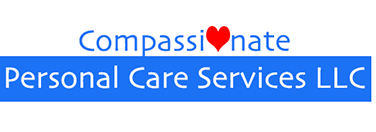The Role of Communication in Effective Personal Care: Tips for Building Rapport

In the realm of personal care, communication plays a pivotal role that extends far beyond mere conversation. It forms the bedrock of understanding, empathy, and ultimately, effective care. Whether you’re a healthcare provider, caregiver, or simply someone looking to enhance your relationships, mastering the art of communication can profoundly impact the quality of care you provide. Here are some insightful tips to help you build rapport through effective communication:
- Listen Actively: Active listening is not just about hearing words but understanding their meaning and the emotions behind them. Practice attentive listening by maintaining eye contact, nodding occasionally, and summarizing what the person has said to show you understand.
- Show Empathy: Empathy involves putting yourself in someone else’s shoes and understanding their feelings and perspectives. Reflect back their emotions and validate their experiences to build trust and connection.
- Be Clear and Concise: Especially in healthcare settings, clear communication is crucial to avoid misunderstandings. Use simple language, avoid medical jargon, and check for understanding by asking the person to repeat back instructions.
- Respect Non-Verbal Cues: Communication is not just verbal. Pay attention to body language, facial expressions, and gestures. They often convey more than words and can help you gauge the person’s emotional state.
- Build Trust: Trust is the foundation of any relationship. Be honest, reliable, and maintain confidentiality. Trust allows for open communication and encourages the person to share their concerns openly.
- Adapt Your Communication Style: People have different communication preferences. Some may prefer direct and factual information, while others appreciate a more empathetic approach. Adapt your style to match the individual’s needs.
- Be Patient: Effective communication takes time and effort, especially in challenging situations. Avoid rushing conversations and give the person ample opportunity to express themselves fully.
- Provide Feedback: Constructive feedback can help improve communication. Offer praise for what went well and gently suggest improvements when needed. This fosters a supportive environment for ongoing communication.
- Use Communication Aids if Necessary: In certain situations, such as with individuals who have speech impairments or language barriers, consider using communication aids like pictures, written instructions, or interpreters to facilitate understanding.
- Practice Self-Care: Effective communication in personal care settings also requires emotional resilience. Take care of your own well-being so you can approach interactions with patience, compassion, and a clear mind.
In conclusion, effective communication is not just a skill; it’s a cornerstone of quality personal care. By actively listening, showing empathy, and adapting to individual needs, you can build rapport, foster trust, and ultimately enhance the well-being of those in your care. Remember, every interaction is an opportunity to make a positive impact through thoughtful communication.


